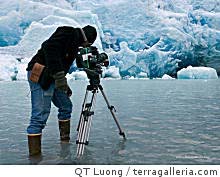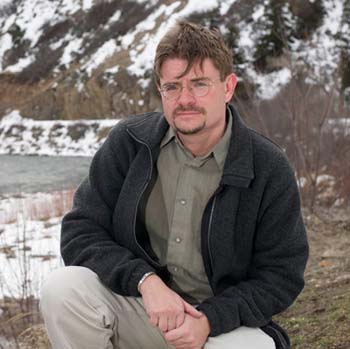David Frey, Special to The Chronicle
Sunday, September 27, 2009
Documentary filmmaker Ken Burns’ project, “The National Parks: America’s Best Idea,” premieres on PBS tonight. The six-part series tracks the park system from the creation of Yellowstone in 1872 to more than a century later, when the park system was being loved to death. Now, parks face the opposite problem. Declining interest and funding have left them neglected. The biggest problems facing national parks today, Burns says: “money, money, money.”
Q: Is there something particularly American about our relationship with land and the sense of wildness we find in national parks?
A: We inherited a Garden of Eden, which Thomas Jefferson thought would take generations, hundreds of generations to fill up. In less than five, we were in danger of losing it all. The parks emerged out of this bittersweet sense of what we don’t save we’ll lose forever.
Q: When I think about a movie about national parks I expect scenic vistas, but this film devotes a lot of time to the people behind the scenes.
A: This is a film set against the backdrop of the most spectacular scenery on Earth, but it is at its heart the history of ideas and individuals. There are 50 or more individuals that we introduce you to over the course of this, big and small, black and white and brown and red and yellow, and female as well as male, that fell in love with these places and tried to save them.
Q: How has this series resonated with people?
A: I’ve been surprised by how much emotion was in it. We didn’t expect the depth of it. I think it’s because when we say we are Americans, it’s because we’re bound together by this common land. The only common land we can now share, that is as it was, are the national parks.
Q: Some of the subjects in the film tear up as they talk about their memories at national parks.
A: It’s hugely important. This is part of what we do. We connect to each other. Life is so ephemeral. When we can be connected to something greater than ourselves, it produces generally powerful emotions. I’m not interested in excavating the dry dates and facts and events of the past, but some emotional archaeology that touches something higher.
Q: If you directed a seventh segment, what would it be? What’s next for the national parks?
A: I think it would be waiting 25 years to see how we responded to this critical moment. There is a crisis of a diminution of interest, a generation of kids who are nature-deprived. How we can pry them – and not just them but their parents – away from their virtual devices that offer no real being or doing, and substitute real experience that comes in capital-N “Nature?”



